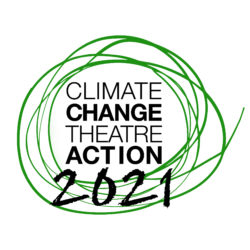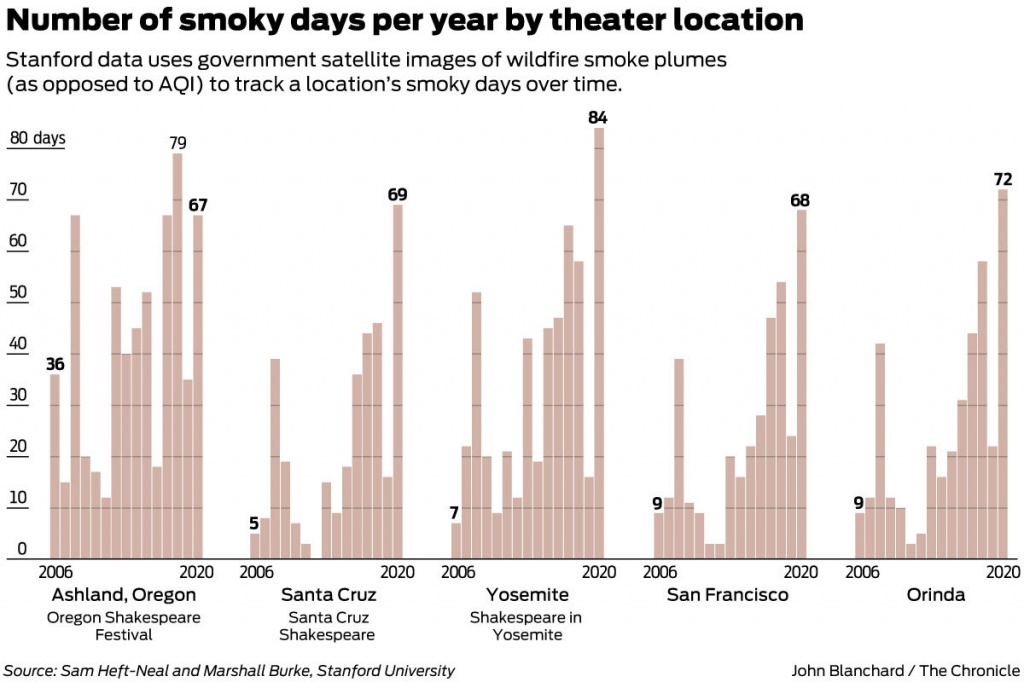Websites and Other Internet Resources
‘Shakespeare as Environmental Writer.’ By Katherine Steele Brokaw, illustrated by Abrian Curington. UC Merced: Center for the Humanities Bobcat Comics. Short Comic explaining how Shakespeare can be used as an eco-playwright.
Artists & Climate Change: Blog featuring lists of eco-art organizations, class syllabi and university programs, and pieces on eco-art from around the world. Organized by The  Arctic Cycle, which uses theatre to foster dialogue about our global climate crisis, create an empowering vision of the future, and inspire people to take action. Operating on the principle that complex problems must be addressed through collaborative efforts, we work with artists across disciplines and geographic borders, solicit input from researchers in the humanities, natural sciences, and social sciences, and actively seek community and educational partners.
Arctic Cycle, which uses theatre to foster dialogue about our global climate crisis, create an empowering vision of the future, and inspire people to take action. Operating on the principle that complex problems must be addressed through collaborative efforts, we work with artists across disciplines and geographic borders, solicit input from researchers in the humanities, natural sciences, and social sciences, and actively seek community and educational partners.
Broadway Green Alliance: The Broadway Green Alliance (BGA) is an industry-wide initiative that educates, motivates, and inspires the entire theatre community and its patrons to implement environmentally friendlier practices on Broadway and beyond. As a community of industry and environmental professionals connected by the shared goal of normalizing greening practices on Broadway and beyond, the BGA has successfully implemented significant sustainability reform at the forefront of the industry since its inception in 2008.
Creative Climate Literacy 101: Produced by Julie's Bicycle, a series of introductory webinars on creative climate action. It covers: the state of the climate and climate policy (where we are now and where we have to get to), where Greenhouse gas (GHG) emissions come from (how we got here), the role of the arts (where we can be most powerful), understanding data and taking action (what YOU can do now, and how we move from individual action to big picture change).
Climate Change Theatre Action: Founded in 2015, Climate Change Theatre Action is a worldwide series of readings and performances of short climate change plays presented biennially to coincide with the United Nations COP meetings.
biennially to coincide with the United Nations COP meetings.
The Centre for Sustainable Practice in the Arts: The Centre for Sustainable Practice in the Arts is a Think Tank for Sustainability in the Arts and Culture. The CSPA views sustainability as the intersection of environmental balance, social equity, economic stability and a strengthened cultural infrastructure. Seeing itself as evolved out of the principles of the 1987 Brundtland Report and 1992 Rio de Janeiro Earth Summit, the CSPA aligns itself with the policies of Agenda 21 for Culture as a resource to artists and art organizations.
Environmental Justice Foundation: Every day vulnerable people are stripped of their rights, freedom and identity. They are victims of the environmental destruction being inflicted on our shared planet. Driven by our core values of integrity, innovation and impact, EJF uses investigations and film to uncover these environmental and human rights abuses. We work for environmental justice, to protect the natural environment and the people and wildlife that depend upon it. Environmental security is a basic human right, and we go to the ends of the earth to defend people and planet.
Public Health Resources for Understanding Environmental Racism: Helpful website compling links to the following related to environmental racism: Environmental Justice Organizations; Resources from Racial Justice Organizations; Government Resources; News Articles and Blog Posts; Videos.
The Theatre Green Book (2024) Renew Culture Ltd. Version 2: Massive resource for greening all aspects of theatrical production, from onstage to concessions.
Mary Robinson Foundation for Climate Justice: Climate justice links human rights and development to achieve a human-centred approach, safeguarding the rights of the most vulnerable people and sharing the burdens and benefits of climate change and its impacts equitably and fairly. Climate justice is informed by science, responds to science and acknowledges the need for equitable stewardship of the world’s resources.
Cymbeline in the Anthropocene: Cymbeline in the Anthropocene is an intercontinental network of ten site-specific productions of Cymbeline. Each production uncovers ecological values in the play’s vibrant range of stories, emotions, and terrains, and to relate them creatively to local environmental conditions in the hope of opening audiences’ imaginations to new biocentric horizons. Website contains blog and information about Cymbeline and the partner productions.
Atmospheric Theatre Project: Open-Air Performance: and the Environment: Explores how written and performed open-air drama might help to raise awareness of air quality and atmospheric conditions. Focuses mainly on the drama of William Shakespeare, which is often performed at open-air venues.
Deep Adaptation: A Map for Navigating Climate Tragedy by Professor Jem Bendell: Two years after its first release, this paper has influenced hundreds of thousands of people to reconsider their lives and work in the face of dangerous climate change. A new agenda, community and movement for Deep Adaptation to our predicament has been borne. It is comprised of people who believe that a climate-influenced collapse of societies in most parts of the world in the coming decades is either likely, inevitable or already unfolding. They are organising a diversity of activities to help reduce harm, save what we can, and create possibilities for the future while experiencing meaning and joy in the process.
The Bookfish: Shakespearean eco-critic Steve Mentz's blog about Shakespeare and oceanic studies, including reviews of productions and books.
Podcasts and Radio Stories
‘Shakespeare and the Environment’, Shakespeare Unlimited Podcast Episode with Todd Borlick, 2024.
Midsummer Night’s Dream: Shakespeare and Climate Change (2023) Shakespeare Anyone? Podcast episode, 2023.
Podcast: Seeds by No Stone Theatre Based on the incredible true story of the world’s first seed bank, Seeds reflects on questions of biodiversity and food security in times of crisis. As the creative sector navigates the pandemic in the midst of the catastrophic loss of biodiversity and ecosystems across the globe, Seeds presents a pertinent moment to meditate on the future we hope to see, and how we can progress with a cultural recovery that is just and sustainable. The podcast series was adapted from a stage play which was in development before the pandemic.
Planet Shakespeare Podcast: Shakespeare in Yosemite: Katie Brokaw talks about the eco-principles that guide Shakespeare in Yosemite's adaptation and performance practices.
Costing the Earth: Art and Environment (BBC Broadcast): The science of climate change is clear but could the arts raise the questions and emotions we now need? Tom Heap discovers art's role in our cultural response to a changing planet.
Shakespeare's Starling (BBC Broadcast): Zoë Comyns tells the story of how one man caused ecological disaster when he was inspired by a Shakespeare play to release 100 starlings into the USA.
News Articles and Blog Posts

Please send us your suggestions to add to this page!

